
Measurabl Announces Expansion of Leadership Team, Promotion of Maureen Waters to President
Measurabl Announces Expansion of Leadership Team, Promotion of Maureen Waters to President.

Measurabl Announces Expansion of Leadership Team, Promotion of Maureen Waters to President.
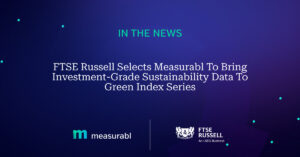
Partnership brings asset-level ESG data to real estate capital markets, with index switchover to go-live today. San Diego, CA – September 23, 2024 – Measurabl,
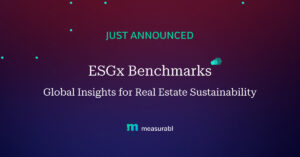
Measurabl’s ESGx Benchmarks allow global comparative performance across property types and geographies. San Diego, CA – September 16, 2024 – Measurabl, the world’s most widely

Struggling with outdated ESG data and compliance challenges? Measurabl’s Quantum Cloud is the answer to your sustainable real estate journey. In an era where sustainability
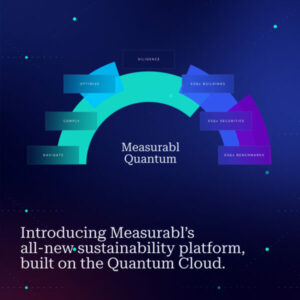
Powered by the world’s most authoritative repository of aggregated ESG data, the new platform includes ‘Measurabl Navigate’ – a comprehensive toolset guiding real estate owners,

The collaboration provides ESG data and software within a comprehensive and integrated smart building ecosystem. BERLIN, GERMANY, June 26, 2024 — Measurabl, the world’s most widely
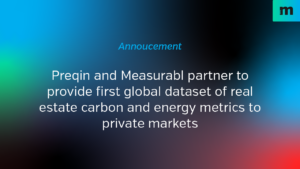
Joint endeavour will provide transparency and accountability in ESG data for privately held properties and portfolios LONDON, UK – 08.00 BST, 17th June 2024 –
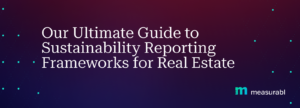
We break down the differences between top standards for sustainability reporting.

The real estate sector in Europe is undergoing significant shifts. From navigating transaction complexities, addressing valuation fluctuations, and grappling with the availability and cost of

ESG Technology Platform helps advance energy and carbon data management for Get Living’s Residential Real Estate London, UK – May 13, 2024 – Measurabl, the

San Diego, CA – April 11 2024 – Measurabl, the world’s most widely adopted ESG (environmental, social, governance) technology platform for real estate, is pleased
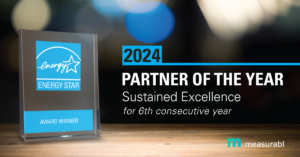
Measurabl’s work in the sector has been recognized again by ENERGY STAR. We are pleased to announce that we have been named a partner of the 2024 ENERGY STAR Partner of the Year Awards. We are also proud to be chosen for the Partner of the Year: Sustained Excellence Award. This recognition is only awarded to 160 organizations, and Measurabl’s inclusion displays its continued role as an industry leader in driving sustainability goals.